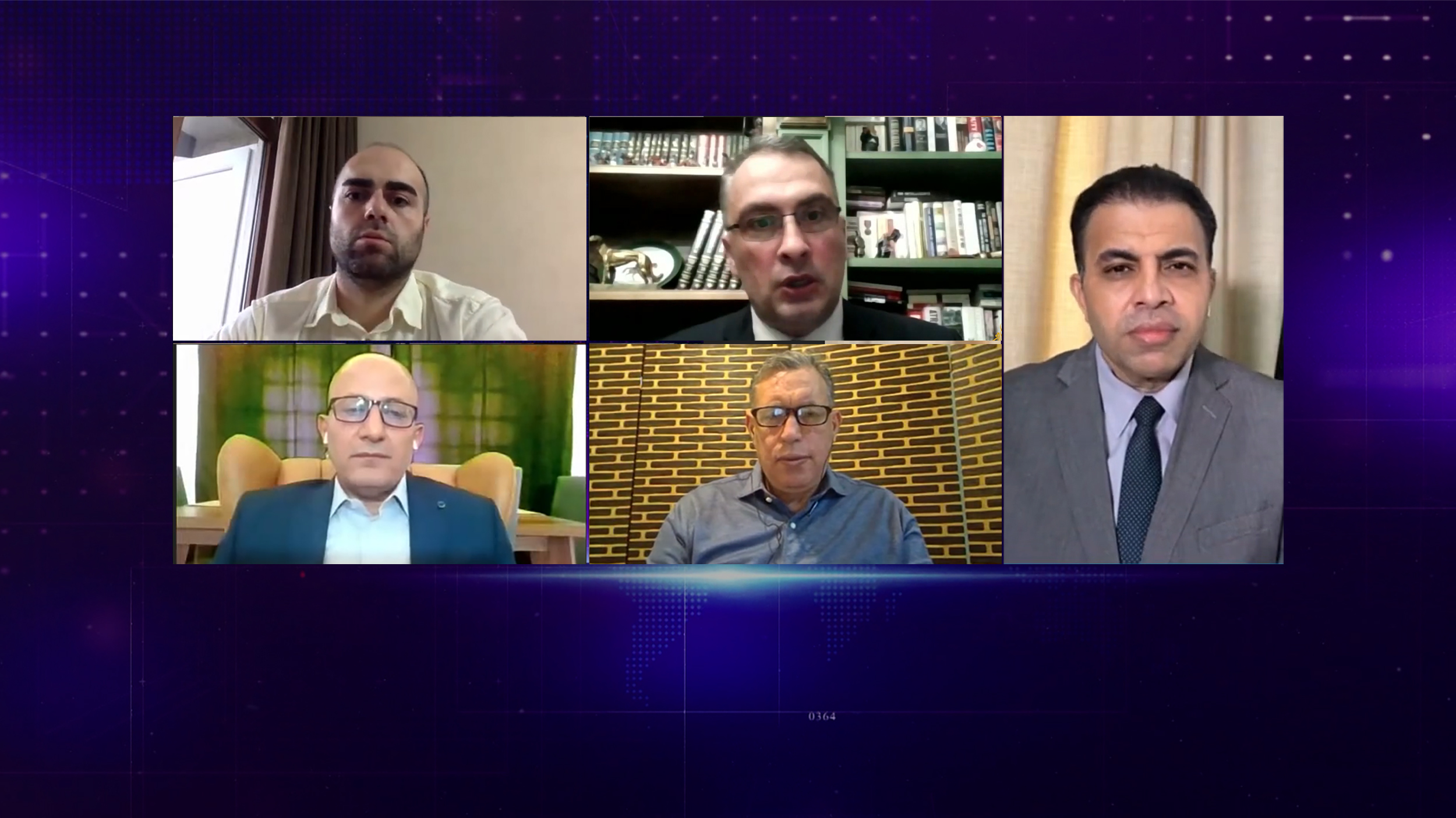
Despite Azerbaijan’s victory over Armenia in the Nagorno-Karabakh war, and despite Russia’s involvement as a guarantor of security and stability in the region, the factors of stability in the South Caucasus are still lacking. Furthermore, there still are possibilities that the conflict could be renewed in different forms, especially after the vacuum left by the United States with its strategic withdrawal from the region to prioritise the confrontation of China. This requires more cooperation between active forces such as Russia, Iran and Turkey so that their conflicting interests do not serve as new motives for conflict and unrest that will affect not only the Caucasus but also the Middle East.
That was the conclusion of a webinar organised by Al Jazeera Centre for Studies and the Georgia-based think tank, GEOCASE, under the title, “Regional powers and their policies in the South Caucasus.” Speaking in the webinar were: Victor Kipiani, Chair of GEOCASE; Emil Avdaliani, Director of Middle East Studies at the same think tank; Haoues Taguia, researcher at Al Jazeera Centre for Studies; and Watheq Al-Sadoon, researcher at the Center for Middle Eastern Studies (ORSAM) in Ankara with Al Jazeera Mubasher presenter Mostafa Ashoor as moderator.
A history of cooperation and conflict
At the start of the webinar, the panel speakers presented the history of relations between the Caucasus and Middle East regions and explained that these relations date back to the first Hijri century when Muslim armies arrived in that region and many of its inhabitants converted to Islam. The relations continued at all levels: political, social, cultural, economic and commercial. However, like any relations between states, they were subject to periods of push and pull, or cooperation and conflict. Later, the Caucasus became a field for competition and conflict between the Russian, Ottoman and Persian empires, and then between the Western and Eastern camps during the Cold War. Thus, the political history of this region, the speakers argued, is a history of instability.
The geopolitical reality after Nagorno-Karabakh
The discussion shifted from the presentation of the history of relations between active and influential international forces in the Caucasus to the current geopolitical reality and a reading of the balances of power after the war in Nagorno-Karabakh from which Azerbaijan emerged victorious. The discussion also included a number of visions and perceptions, including the existence of a “fragile” balance between Armenia and Azerbaijan despite the efforts of Russia and Turkey. The speakers attributed this to the fact that the agreement between Armenia and Azerbaijan is subject to difference in interpretation, rendering the intervention of sponsoring states necessary for its preservation as a framework and reference for relations.
As for the gains of some regional forces from the war, the webinar deduced that Turkey, for example, achieved great geopolitical gains as exemplified by its military presence in Azerbaijan, which in itself is a gain whose size Turkey has not achieved in about a century. Moreover, Turkey’s political influence overall has become stronger than before especially now that it shares borders with Azerbaijan; and its relations with the latter can be described as a “strategic alliance,” which is important for any future developments.
The same holds true for Russia, as it now has military presence there albeit limited as Moscow considers the Caucasus an important part of its foreign policy and a vital area that cannot be neglected despite the challenges it presents due to its various ethnic, international and regional conflicts.
However, Iran’s position towards the war, the panellists maintained, was neither clear nor decisive as it did not back Armenia like it had in the past; and after the war, it changed its policy, leaning more towards Azerbaijan. In this regard, the discussion concluded that the change in the Iranian position may be due to Tehran’s desire to strengthen its relations with Moscow, because the latter can control Turkish influence in the Caucasus; and therefore, Iran can obtain a “balance of influence” with Turkey in the region.
As for the implications of the war and the geopolitical developments that followed it from a Gulf perspective, Gulf states now see Georgia as an investment opportunity due to its favourable investment environment and the factors it provides for attracting capital, especially as it will have an important role in the Chinese silk road and the commercial relations between East and West.
A future open to possibilities of war and peace
The webinar ended with the indication that the Caucasus will remain a relatively unstable region despite security arrangements sponsored by Russia and Turkey. This is due to the fact that Armenia, Azerbaijan and Georgia (the South Caucasus) are involved in a cycle of escalating regional and international conflict, especially as it pertains to Russian and US policies. The webinar also suggested that if Russian-US animosity rises and any kind of clash occurs, the Caucasus is likely to be the arena for revenge and score-settling. This will also be the case for any future disputes and conflicts between Turkey, Iran and Israel. The causes of unrest already exist, and are likely to lead to more tension unless the states of the Middle East and the Caucasus and Russia are able to cooperate and their cooperation overcomes competition and conflict.
For more information about the webinar, watch here: